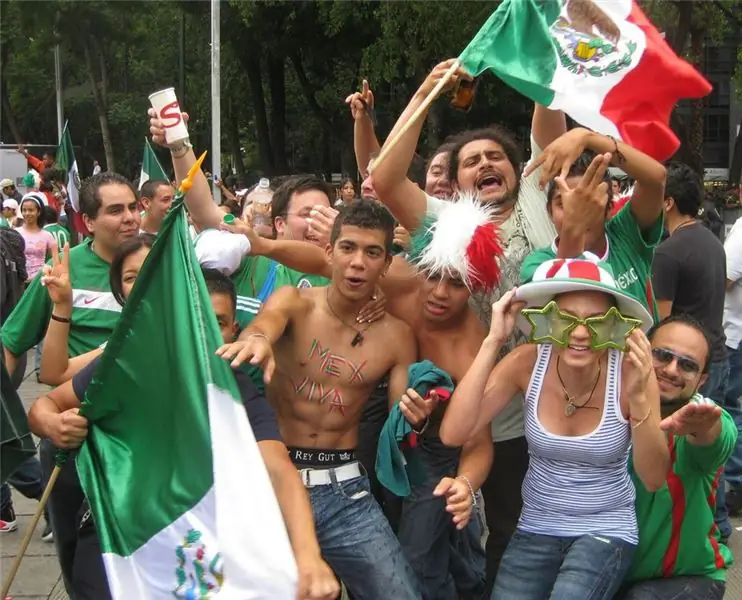
The second article of the basic law of this country defines it as a multicultural state that recognizes the right of indigenous peoples to preserve and develop their own dialects and dialects, and therefore the official state language of Mexico does not exist. But most of the inhabitants of the country of tequila and cactus still prefer Spanish.
Some statistics and facts
- The Mexican government recognizes 68 national languages as complementary to Spanish.
- From 10 to 15 percent of the country's inhabitants, according to various sources, consider themselves Indians.
- In total, the country is home to about 6 million people who are native speakers.
- The largest group of indigenous speakers are descendants of Indians speaking Nahuatl.
- The first attempts to introduce Spanish into Mexico were made in the 16th century.
- In the 150 years from the beginning of the 19th century to the middle of the 20th century, the number of Mexicans speaking the languages of their ancestors fell from 60% to 6% of the total population of the country.
The percentage of Mexican citizens who speak English is quite high. This is due to the close proximity and frequent seasonal work of Mexicans in factories and farms in the United States.
Lost in translation
Even visitors to Mexico who speak modern Spanish can have certain difficulties in understanding here. Certain changes have taken place in the local Spanish system, as a result of which the sound of individual sounds only vaguely resembles today the classics of the language common in the Pyrenees. At the same time, some linguists consider the state language of Mexico to be very conservative, since in it, in everyday use, words have been preserved that the Spaniards have considered archaisms for two hundred years and no longer use in their own speech.
Note for tourists
When traveling to Mexico, be prepared for the fact that English-speaking hotel or restaurant staff are found only in major cities and tourist resorts. In places where independent travelers prefer to plot a route, the percentage of such polyglots is negligible. The menu in a cafe away from the main streets of even the capital no longer contains the names of dishes in English, and it will be impossible to explain to the waiter your gastronomic preferences.
In general, a Russian-Spanish phrasebook on a trip can greatly facilitate the life of a tourist, especially since Mexicans are very sociable, open and friendly.






